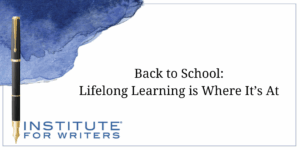
Back to School: Lifelong Learning is Where It’s At
Opportunities for lifelong learning about writing are abundant and during this back-to-school season it is easy to get inspired.
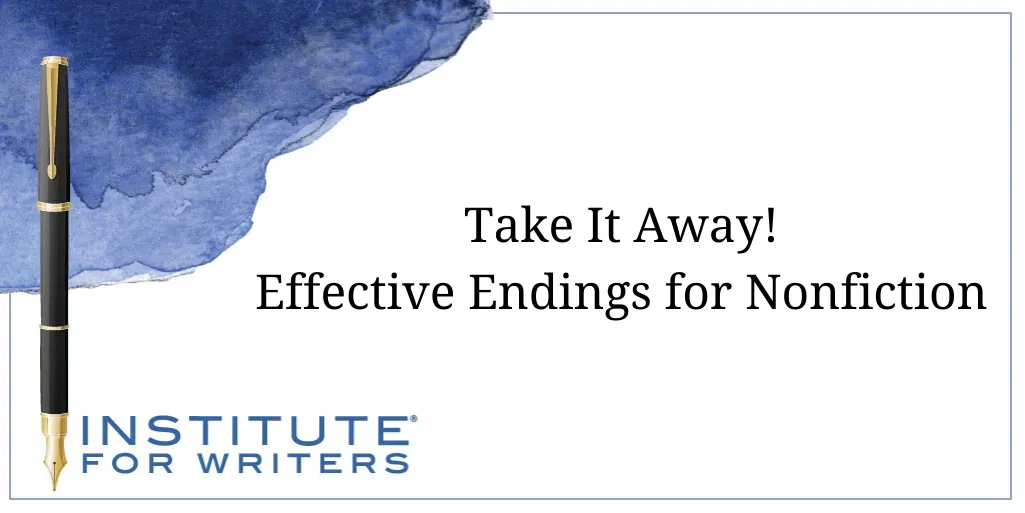
We teach our students how to write and get published!
View our Course Catalog >
~The End~
In literature, these two words, appearing on the last page, mean just what they say. But an effective conclusion makes these words unnecessary because the author has brought readers to “the end” in a thoughtful and satisfying way. Beginnings and endings can be challenging, and authors often revise them several, if not many, times. After all, if the opening doesn’t interest a reader, they will probably stop reading. Likewise, when readers finish our book or article, we want them to feel it was time well spent, and that our material met their expectations.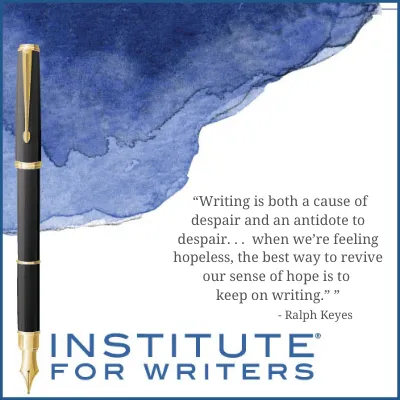 Consider a book designed to help readers reduce their food bills while eating healthy meals. Chapters would offer tips on meal-planning, shopping, food storage and preparation, and more. The ending could reiterate key points—that careful planning and shopping, couponing, choosing store brands, and using recipes in the book save money. Moreover, these practices can save time and help the environment by reducing food wastes. Finally, the author can encourage readers to join others who are glad they have put these ideas into practice. Readers can close the book feeling they ‘got what they came for’ and can benefit from the information.
Now consider a memoir that deals with a serious topic, such as caring for a parent who died after a long illness. Along with a gripping personal story, such a book can offer information and practical suggestions for other caregivers. The author might end by summarizing things they learned about themselves, other people, and “life” in general during this challenging time, while offering encouragement and support to readers dealing with similar situations.
In a book that discusses social issues, the ending can remind readers why they should care about the issues involved and how they might contribute to solutions. Suppose the book deals with the history of voting rights. The conclusion might reiterate the long, hard struggle for these rights and note the benefits and duties of citizenship, with quotes from early American statesmen and/or voting rights leaders to inspire the reader.
Some nonfiction deals with unfinished business or mysteries, such as how dinosaurs became extinct, an unsolved crime, a longstanding political debate. The conclusions for such books might summarize the state of the research and/or the debate at that point in time while speculating about how things might unfold in the future, and what factors could influence those developments.
Endings also can encourage readers to keep thinking about what they read and learn more. The conclusion for a book about endangered mammals might discuss how different circumstances could impact the future of these species and note places where readers can see the animals in person and even help them to survive.
Biographies often end by discussing the person’s contributions, role in history, and/or “legacy.” What makes this person memorable and distinctive? The last paragraph might also recall big obstacles the subject overcame during their lifetime. Here again, quotes can be effective, including quotes from people who have different opinions about the subject of the biography.
Consider a book designed to help readers reduce their food bills while eating healthy meals. Chapters would offer tips on meal-planning, shopping, food storage and preparation, and more. The ending could reiterate key points—that careful planning and shopping, couponing, choosing store brands, and using recipes in the book save money. Moreover, these practices can save time and help the environment by reducing food wastes. Finally, the author can encourage readers to join others who are glad they have put these ideas into practice. Readers can close the book feeling they ‘got what they came for’ and can benefit from the information.
Now consider a memoir that deals with a serious topic, such as caring for a parent who died after a long illness. Along with a gripping personal story, such a book can offer information and practical suggestions for other caregivers. The author might end by summarizing things they learned about themselves, other people, and “life” in general during this challenging time, while offering encouragement and support to readers dealing with similar situations.
In a book that discusses social issues, the ending can remind readers why they should care about the issues involved and how they might contribute to solutions. Suppose the book deals with the history of voting rights. The conclusion might reiterate the long, hard struggle for these rights and note the benefits and duties of citizenship, with quotes from early American statesmen and/or voting rights leaders to inspire the reader.
Some nonfiction deals with unfinished business or mysteries, such as how dinosaurs became extinct, an unsolved crime, a longstanding political debate. The conclusions for such books might summarize the state of the research and/or the debate at that point in time while speculating about how things might unfold in the future, and what factors could influence those developments.
Endings also can encourage readers to keep thinking about what they read and learn more. The conclusion for a book about endangered mammals might discuss how different circumstances could impact the future of these species and note places where readers can see the animals in person and even help them to survive.
Biographies often end by discussing the person’s contributions, role in history, and/or “legacy.” What makes this person memorable and distinctive? The last paragraph might also recall big obstacles the subject overcame during their lifetime. Here again, quotes can be effective, including quotes from people who have different opinions about the subject of the biography.
Victoria Sherrow has published short stories, articles, poetry, and books (fiction and nonfiction) for readers aged preschool through adult. Her books have received starred reviews and been honored by the American Library Association, Parents Choice Gold Award, National Association for the Advancement of Science, and NYPL Best Books for the Teenage, among others. Victoria has taught at The Institute of Children’s Literature for more than 25 years and has also been an assistant editor and writing contest judge.

Opportunities for lifelong learning about writing are abundant and during this back-to-school season it is easy to get inspired.
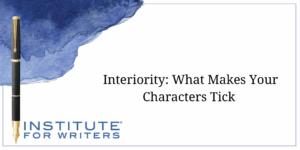
As you seek to create characters, you will also want to work to strengthen the interiority of those you are writing about.
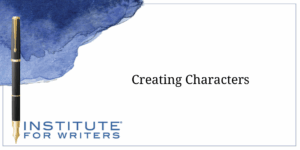
Character development is an interesting part of writing but may be among the most time consuming and significant in your story.
1000 N. West Street #1200, Wilmington, DE 19801
© 2024 Direct Learning Systems, Inc. All rights reserved.
1000 N. West Street #1200, Wilmington, DE 19801
© 2025 Direct Learning Systems, Inc. All rights reserved.
1000 N. West Street #1200, Wilmington, DE 19801
©2025 Direct Learning Systems, Inc. All rights reserved. Privacy Policy.
6 Comments